Worried about your privacy online? Today, we use the internet to send emails, attend meetings, join classes, and so much more, just from a touch of a button.
But are you really safe online?
I bet you have asked yourself this question a couple of times. Surprisingly, you are not alone. In fact, according to a report by CISCO, 84% of users admitted that they were concerned about their online privacy.
Now, you have done your digging around and found out that you can use a Surfshark vs NordVPN or a proxy to protect your online data.
Admittedly, one can protect your IP address and the other one will encrypt your data. So which one should you choose?
This must be feeling like an armageddon, but don’t fret.
In this article, I’ll take you through some of the main differences in this battle of VPN vs proxy, and which one is better for online privacy.
First, let’s define what VPNs and proxies are.
What is a Proxy?
In simple terms, a proxy is an intermediary computer that connects you and a server.
When you connect to your web through a proxy, it will act as a gateway. With this, you can connect to restricted websites or watch geo-restricted content.
Moreover, proxies help you hide your IP addresses from all the websites, streaming platforms, and file-sharing platforms that you visit daily. However, proxies only work on an application level.
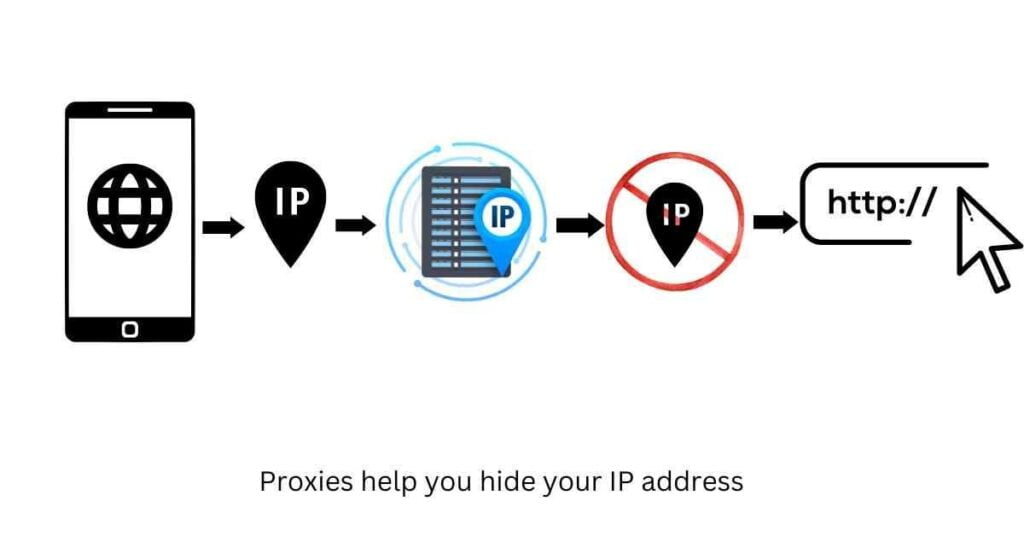
Meaning you can not protect your whole device at a go, instead, you will only be able to protect the website you are visiting and everything else is left vulnerable.
You should also note that proxies don’t provide encryption for your data online. With that, here are three main proxy types:
- HTTPS proxies
- SOCKS5 proxies
- Transparent proxies.
Proxies are good for bypassing restrictions, but not hiding your data.
Next, what are VPNs?
What is a Virtual Private Network?
VPNs are software that encrypts all the data you send or receive on the internet.
Unlike a proxy which works at the application level, VPNs work at the operating system level.
Practically, you can access all your apps, programs, and browsers safely at the same time. But that’s not all, VPNs just like proxies, mask your IP address with an IP address from one of their servers.
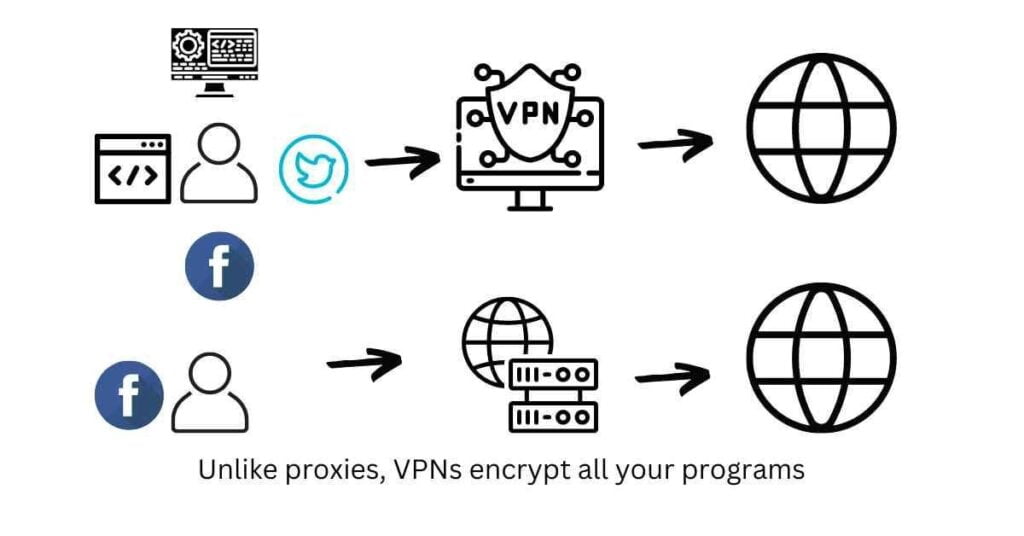
Normally, VPN proxies offer dynamic IPs as a default. These are random IP addresses assigned to you anytime you access the website. Since they are shared IPs, you might be assigned an IP address that was used for malicious purposes.
Fortunately, with a reputable virtual private network, you can get some of the best dedicated IP VPNs, that will shield you from the shortcomings of using a shared IP address when accessing sensitive sites, like your online banking portal.
To help you choose between a VPN or a proxy. Here are five main differences between the two. I’ll focus mainly on security, privacy, cookies, cost, and connection speed aspects.
1. Security
You need to browse the internet cautiously.
According to Statista, over 13 million data records were disclosed all over the world through data breaches.
With that said, whether you choose a VPN or a proxy, your security should come first. Unfortunately, most public proxies don’t guarantee such security. A proxy will hide your IP address from the websites. But it will not hide your online activities.
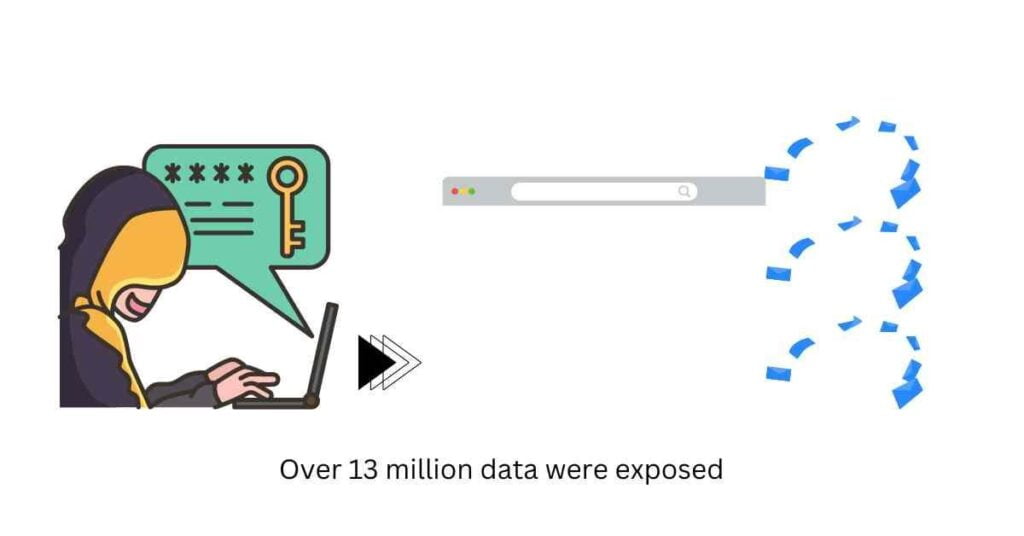
On the other hand, suppose you opt for a paid proxy, you will get to access the internet with an HTTPS protocol but without end-to-end encryption.
But with VPNs, anytime you send your data through the web, the data is first sent to the VPN’s server end before it’s encrypted and sent back to the client on your computer. Look, only after the client decrypts the data, can the other programs use it.
Even though they also hide your IP address, VPNs’ main caveat is that it’s a war finding a reliable provider
2. Privacy
In this battle of VPN vs proxy, it’s really hard to find which software protects your privacy.
Yet so many people today are concerned about their privacy. In fact, according to VPNMentor, 74% of the United States internet users limit their internet due to privacy reasons.
Fortunately, VPNs give your data complete encryption every second you send data to or from the web. This means that your ISP, government, and employer can’t snoop on what you do on the internet. On the other hand, proxies don’t encrypt your data.
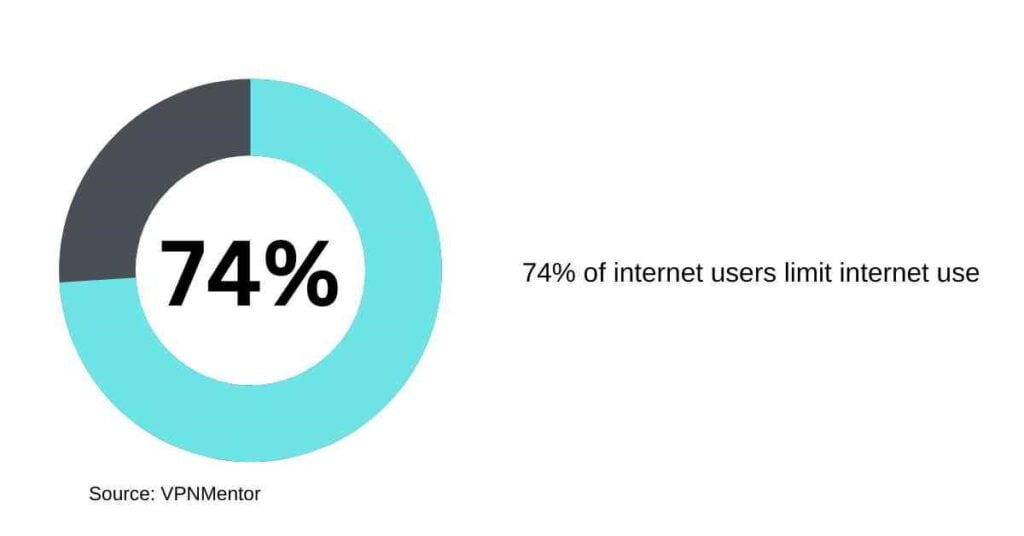
Yes they hide your IP address from websites, but they don’t hide your online activities. And it gets easier for someone to follow your digital footprints.
Suppose you are worried about your data being intercepted, the good news is that VPNs have end-to-end encryption that makes sure no black hat hackers breach your communication.
With that said, you should note that you are still vulnerable to device fingerprinting even if you use a proxy or a VPN.
3. Connection Speed
Maybe you want to stream your favorite movie on Netflix, or you want to play your favorite game online.
How will connection speed affect you?
I take it as a big deal.
Now, one of the most significant differences between a VPN and a proxy is how fast they connect you to the internet. Without any doubt, you will have sluggish connection speed with most open proxies.
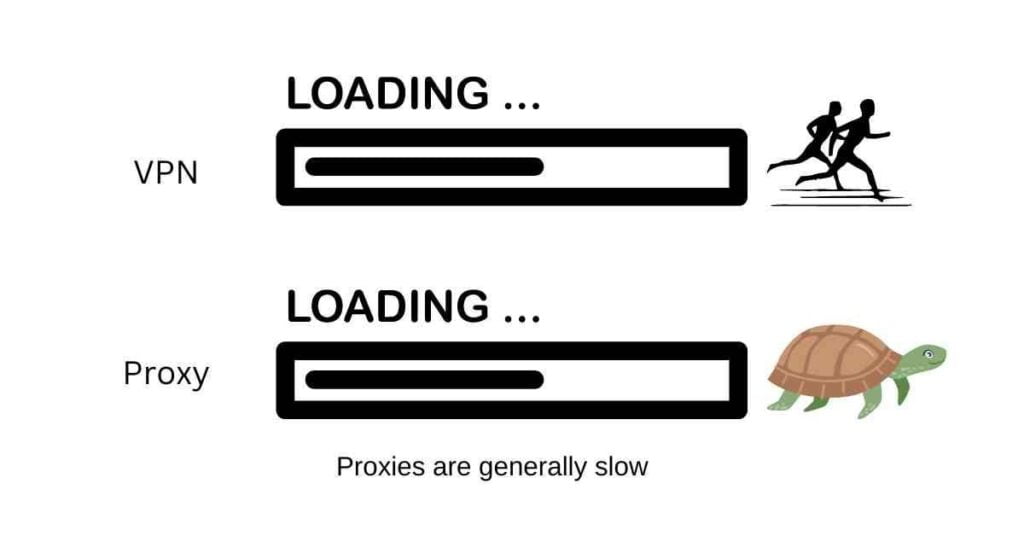
On the other hand, when you use a VPN, you will have a high connection speed compared to that of a proxy.
Even though you might experience latency when using a VPN because of the encryption, most of the time you won’t even notice it. Unless you are a heavy internet user.
VPNs are generally faster than most proxies. This is because they can sometimes boost your speed if a website is not using a CDN.
4. Cost
It all comes down to your needs when it comes to a VPN vs a proxy.
Today, there are many free VPN services available. However, most of these virtual private networks will limit how much data you use daily.
Furthermore, you will also have restrictions when it comes to how many servers you can switch to in a day. For this reason, most users opt for the paid version for the full protection of their privacy.
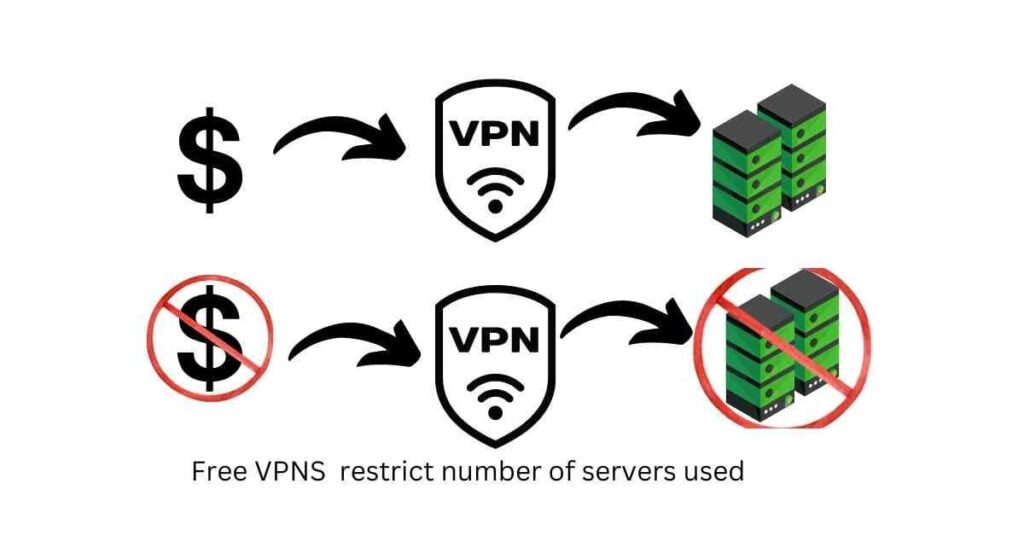
Most proxies however are free. But there are drawbacks that come with them. Suppose you are using an open proxy, you will be surfing the web without an HTTPS protocol. Which is more like accessing the web with your browser directly.
But you can always opt in for the paid proxy if you want a reliable service.
5. Cookies
Your cookies are shared without permission.
Every time you surf the web today, you will see an advertisement that directly targets you.
This is possible, thanks to your cookies. According to a publication by Americanbar, there’s been an increased eye for internet privacy. Concurrently, most internet users are worried about how ads track their every move.
No doubt, there’s a need to stop these sites and marketers from tracking you.
So is it going to be a VPN or a proxy?
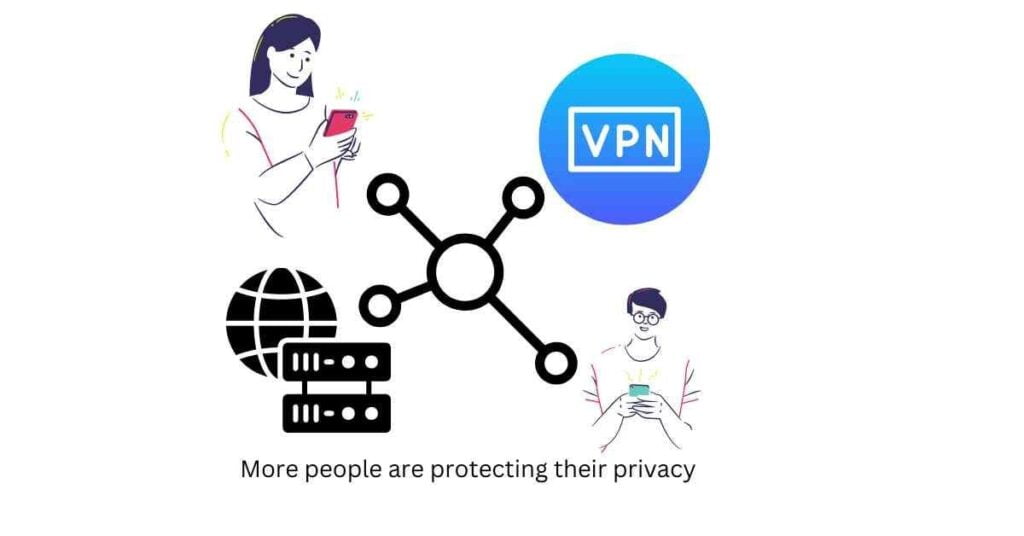
Either way, your cookies will be downloaded into your system through a proxy or a VPN. Both a proxy and a VPN protect you from cookies. Practically, they mask your IP address and provide ads with the software’s server IP address.
In addition, a VPN can protect you from digital tracking techniques, not to mention fingerprinting. With that, ensure that all your cookies are cleared before you use a VPN server and a proxy.
Conclusion
Without a doubt, privacy on the internet is a big issue today.
And when it comes to which software can best secure you and keep your privacy in check, you constantly question yourself on which one is better.
Well, in this article, we looked at VPN vs proxy and which one is better for online privacy. We all agree that privacy doesn’t only stop at playing geo-restricted games. Obviously, freedom to share information is really important too.
With this, you can easily choose which software suits your needs best.
Have you ever used any of this software?
Please share your experience in the comment section.

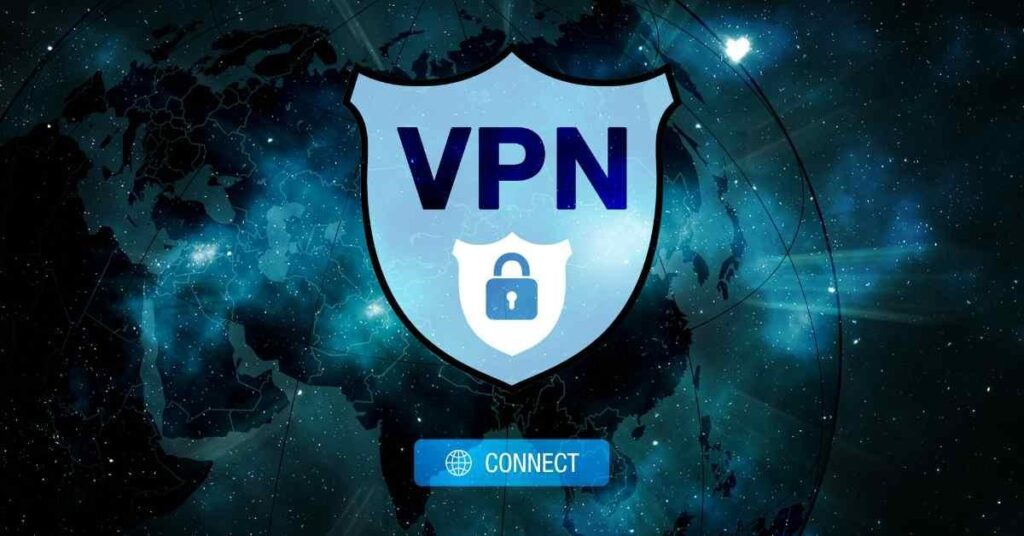






Leave a Comment
You must be logged in to post a comment.